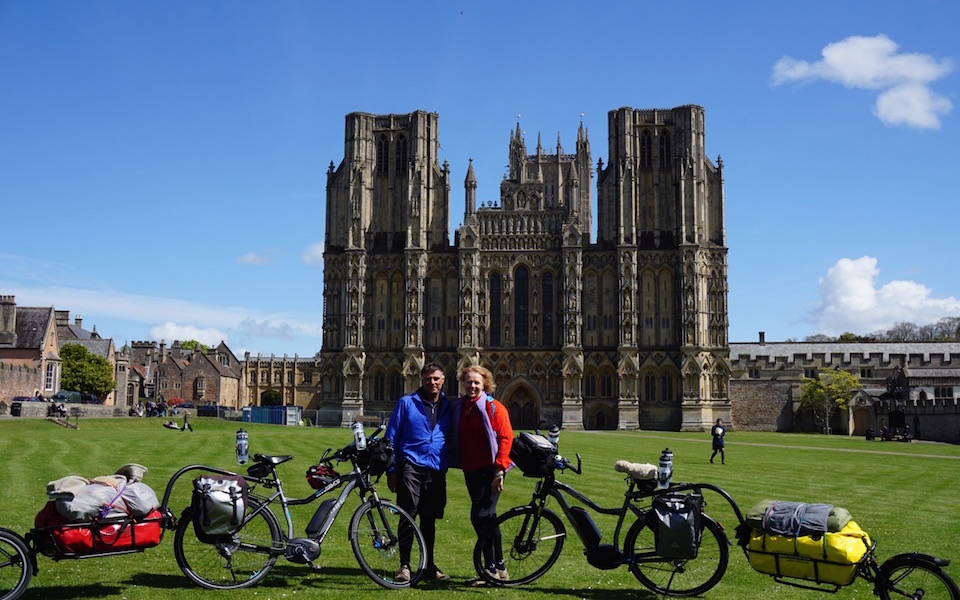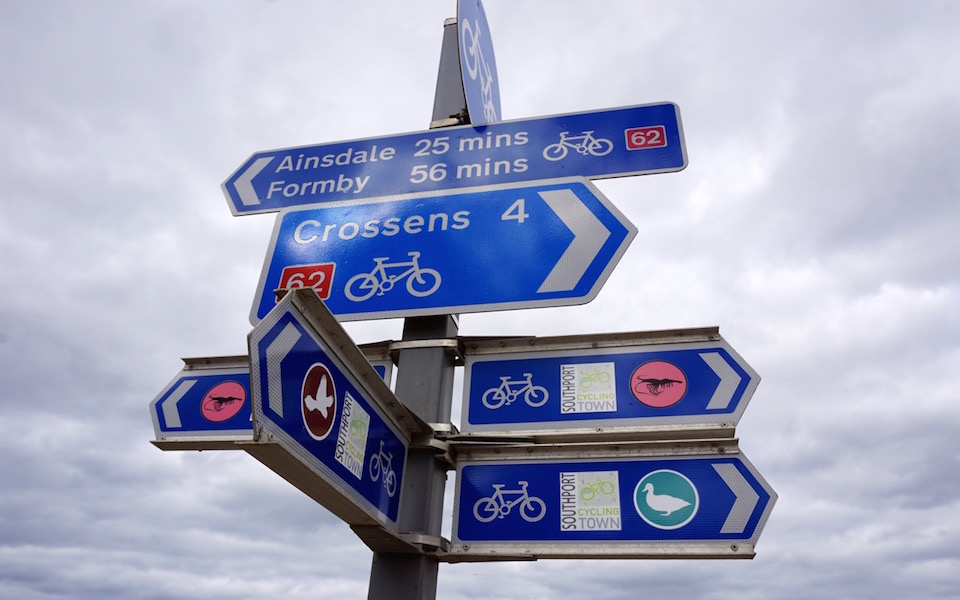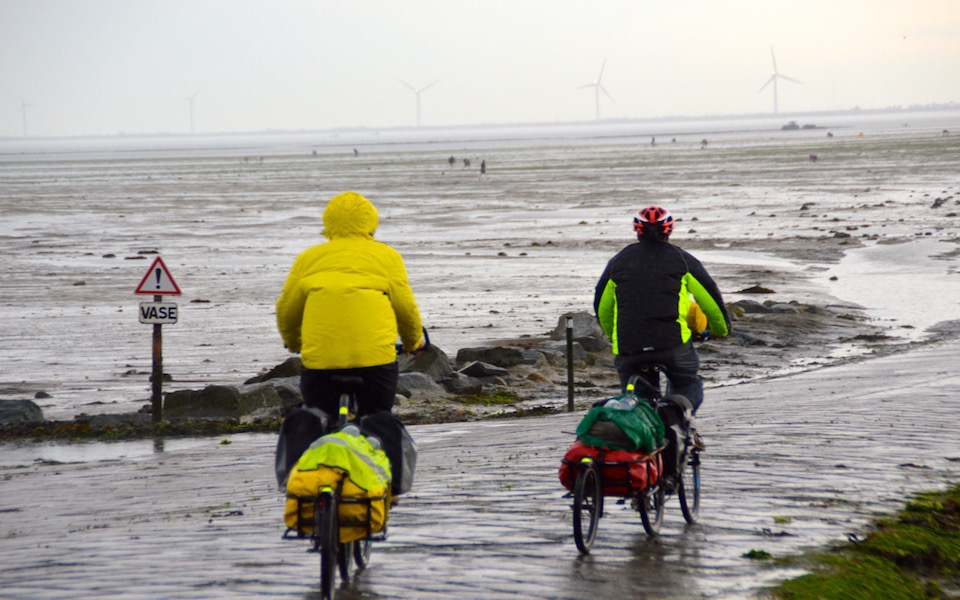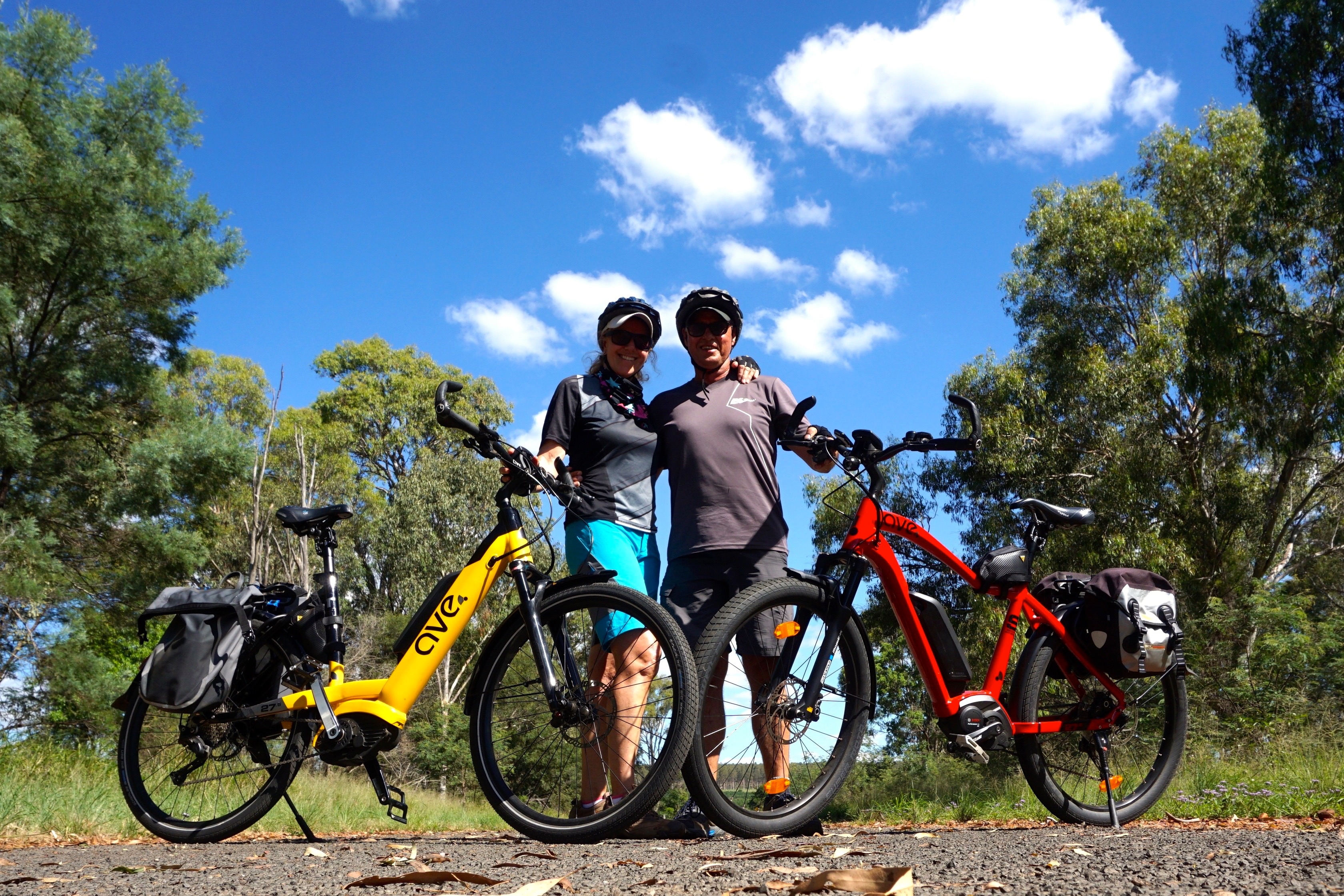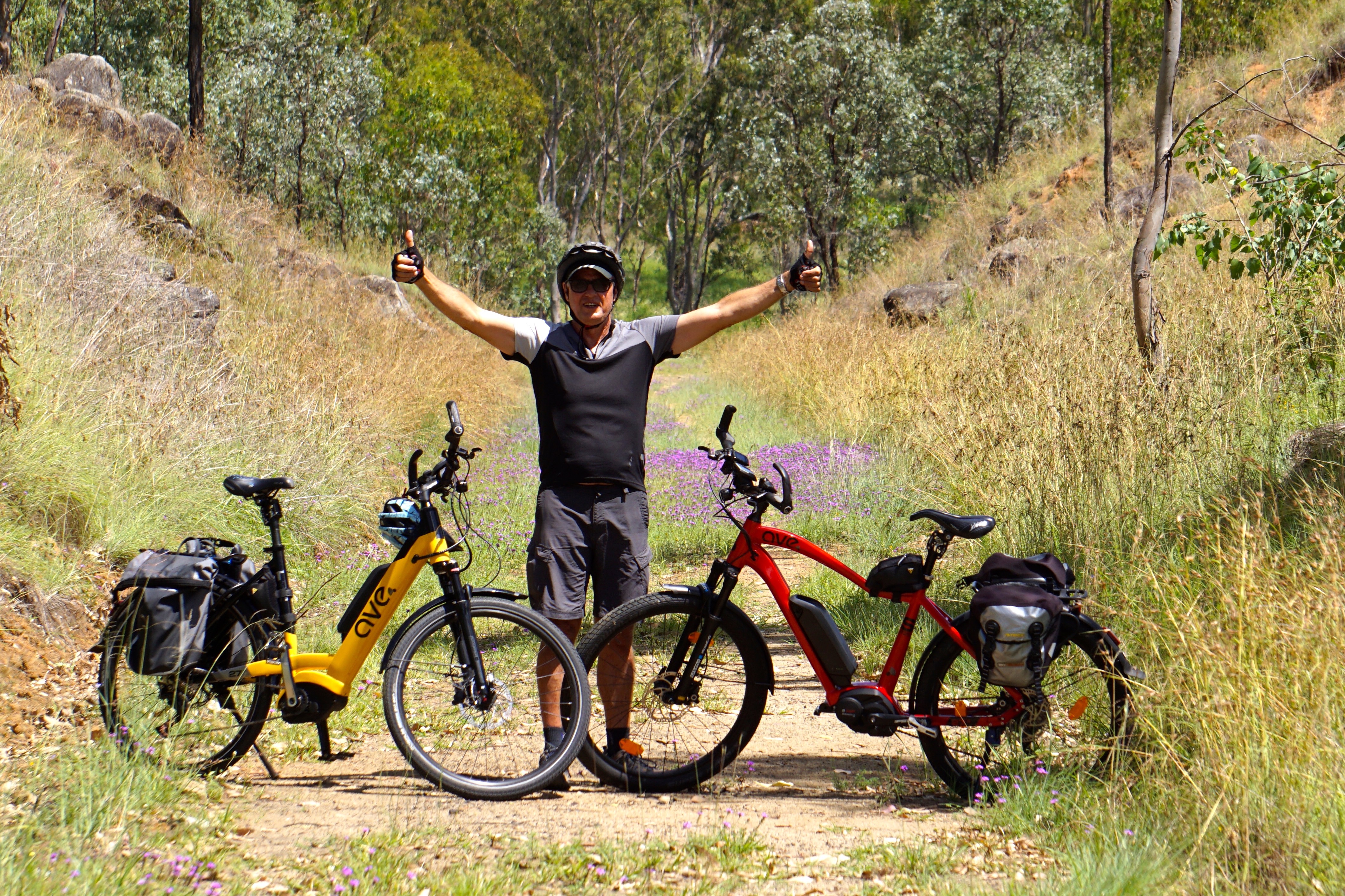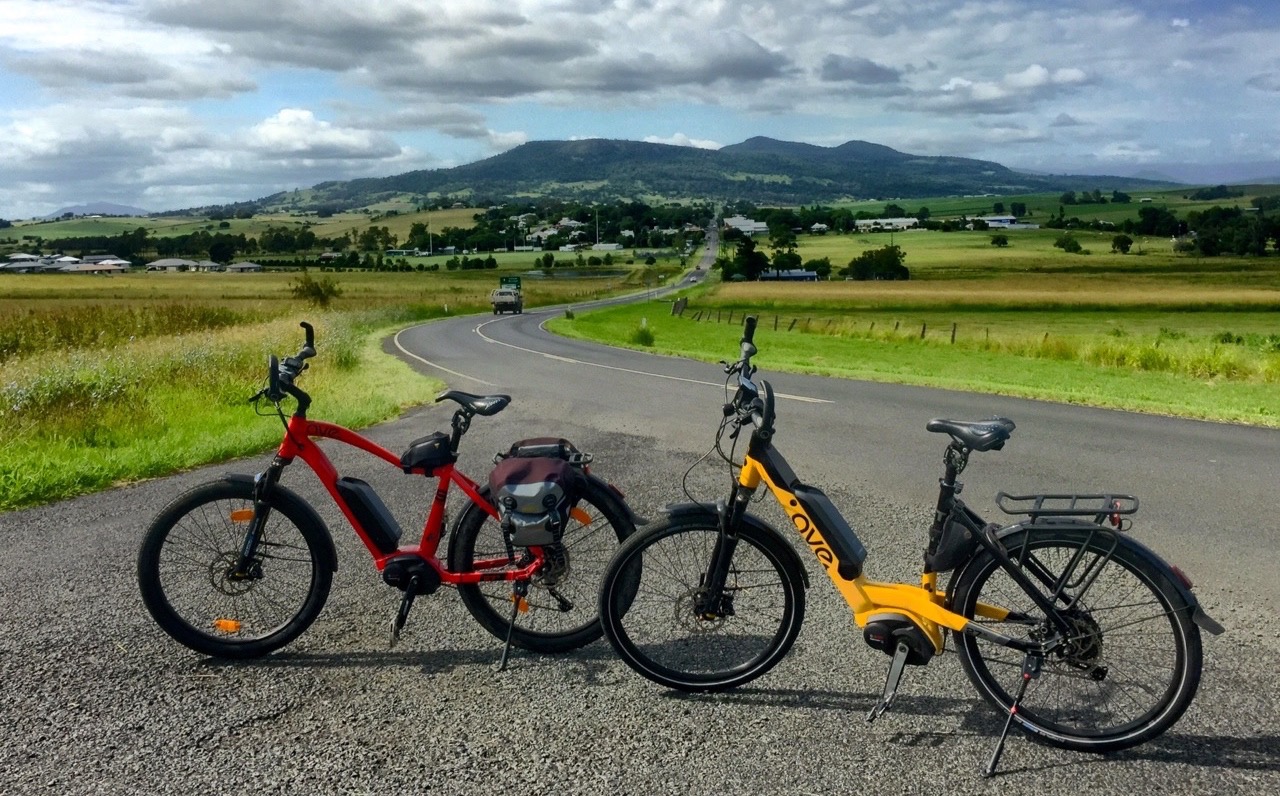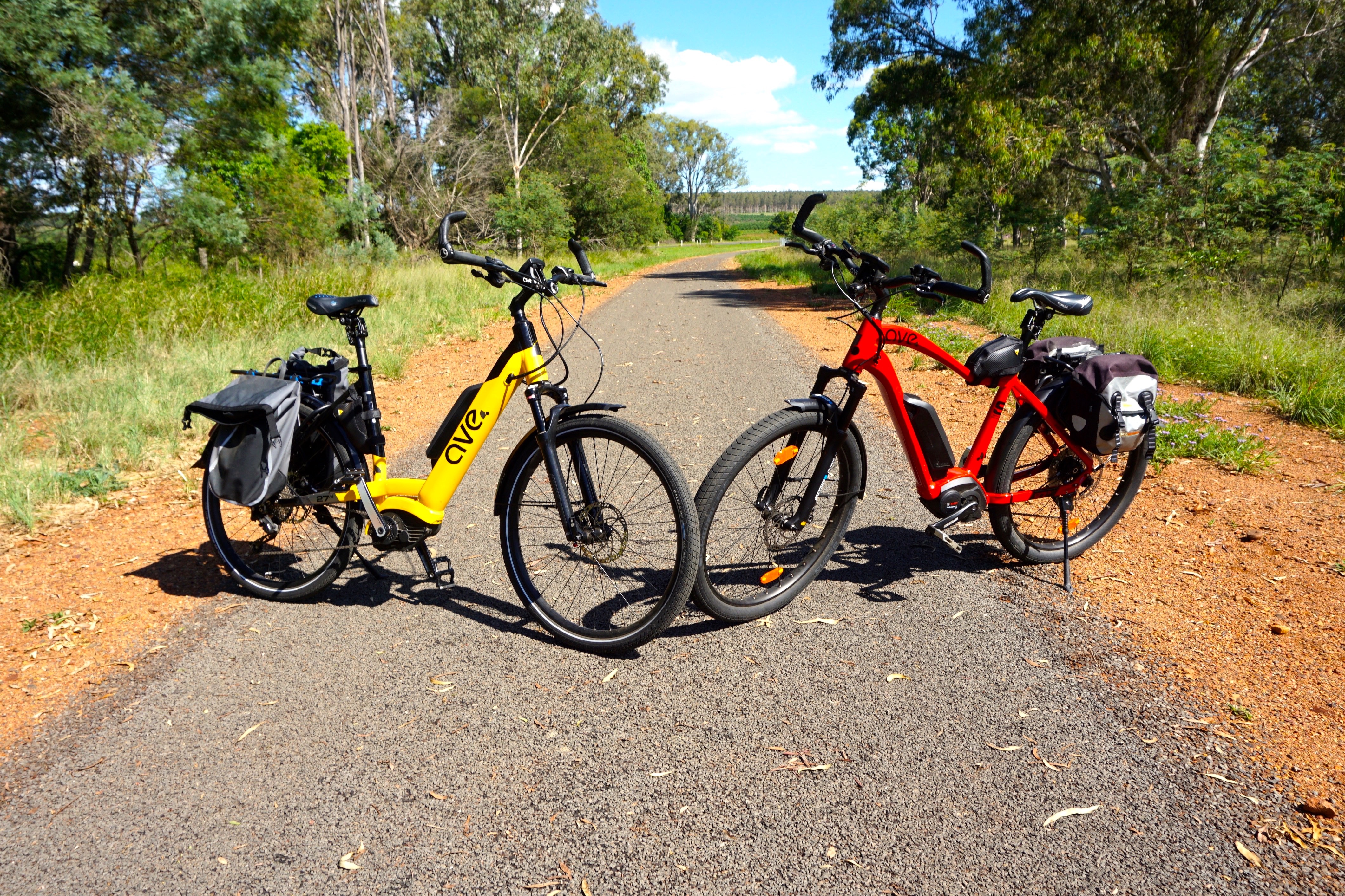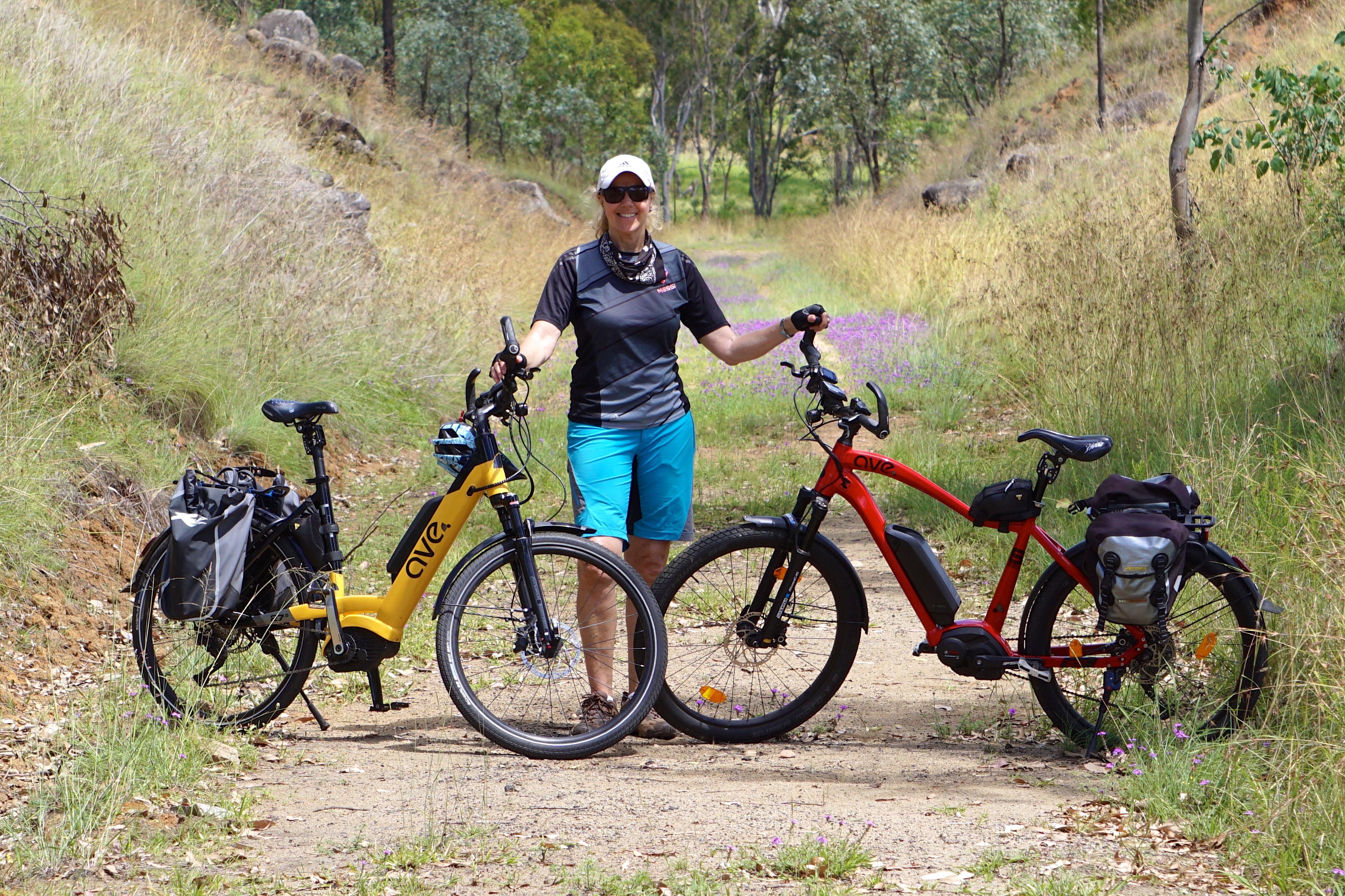As can be imagined, setting out to set a new world e-bike record of well in excess of 16,000 kilometres is a far different proposition to taking your e-bike out for a leisurely Sunday afternoon ride.
With your bike’s battery fully charged when you leave home your weekly ride of 30, 50 or even 70kms is as it should be – a lot of fun, exhilarating and barring the unexpected, a trouble free workout.
At the end of your ride all you have to do is plug your e-bike’s battery into the mains electricity outlet in the garage and you are primed and ready for your next outing.
But what do you do if you are cycling day after day, week after week for up to 12 months and you know mains electricity won’t always be conveniently available at the end of the day to plug into?
That in a nutshell is the problem I have been constantly pondering since the e-Bike Cycle Tourists decided to throw caution to the wind to have a whole-hearted crack at setting a new world e-bike long distance record of more than 16,047kms.
Over the course of the past eight or so months the issue has dominated my thoughts as we have slowly moved forward with our planning for the record-breaking ride.
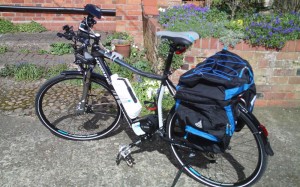
Clearly with our Haibike xDuro Trekking RX e-bikes’ Bosch batteries – as supplied by the e-bikeshop.co.uk – requiring recharging on a daily – and even occasionally on a twice daily basis – it is an extremely important issue that HAS to be resolved.
But unfortunately, given the importance of finding a suitable solution to the problem, there has been no easy answer. The truth of the matter is that it has been something of a frustrating rollercoaster as I have searched for the so-called “right” solution to charge our Bosch 400Wh lithium ion batteries.
At first, before I fully understood the enormity of what we had committed ourselves to e-bike wise, I naively thought that mains electricity would be more than adequate for all of our battery charging requirements.
But it didn’t take long before a flashing red warning light came on somewhere in the deep dark recesses of my brain: what will we do if we don’t have access to mains electricity; we need to find an alternative charging system!
So what do you do if you need an answer to a problem these days? You ask Mr Google of course! Hours and hours of internet research later and I finally thought I had the answer – a solar power system attached to the Tout Terrain cycle trailers we will be towing.
But that is when things got interesting – not! To cut a very long story short, the complexities of the Bosch batteries and their charging system in combination with the limitations of conventional solar technology basically mean that there are very few people in the world with the expertise to build a suitable solar system. And the cost if you can find someone with the know-how to build a solar system for you? Forget it!
Also, throw in the not insignificant problem of a solar system not being able to generate enough power when there are extended periods of cloudy weather – a distinct possibility where we are cycling in the UK, Europe and Scandinavia – and suddenly the solar option didn’t look so attractive.
So where to now? Back to Mr Google. More hours of research later and I thought I had found an alternative solar option – a solar generator.
But as I very quickly once again discovered when you put the words ‘solar’ and ‘e-bikes’ together in the same sentence nothing is easy.
While a small solar generator at first sounded like the answer to our charging problems, there were problems – and as it turned out they were insurmountable problems.
First and foremost was the weight. A system capable of holding a solar charge suitable to charge our Bosch batteries up to four times daily weighs in at 20-plus kilograms, far too heavy to carry on a bicycle – even an e-bike. Throw in the same old problems of a potential lack of sunlight, charge times and the initial cost of the system and suddenly the solar generator option didn’t look so good after all.
It was at this point that I reluctantly settled on what appears to be the ONLY solution to our problem – a lightweight portable petrol powered generator.
I say “reluctantly” because for a host of reasons a generator does not fit into our ‘green, clean and environmentally friendly’ ideal of riding an e-bike.
One of the attractions of riding e-bikes – aside from the fact that they so effectively iron out hills and tame head winds – is that they are non polluting. But unfortunately the electric charge has to come from somewhere and that somewhere could, at times, be out in the middle of nowhere during the course of our record-breaking ride.
So what do you do if you are pushed into a corner and you know that you need to come up with an answer – you go with whatever is best, and on this occasion it is a small generator weighing in at about 10kg.
The plan at this stage two weeks before we head off to London on April 13 to make final preparations for the ride is to carry the generator, petrol container, tent, sleeping bags, sleeping mats etc in one of the cycle trailers and our clothing – and anything else that isn’t compatible with being towed around alongside a generator – in the second cycle trailer.
Pre-ride tests have shown that small generators can more than adequately charge at least three Bosch batteries at once – we are taking two back-up batteries – and that they are quiet enough for discrete daily use.
So there you have it. We are essentially going with our fourth charging choice after exploring the possibilities of mains electricity, solar power and a solar generator, but given the circumstances we are more than comfortable with the decision.
After all, others in the past who have attempted to break the world e-bike record have not only resorted to using generators, but have also had the assistance of support vans and crews.
In contrast we will be travelling fully self-contained and without outside assistance, so hopefully we can be forgiven for not being completely clean and green.

